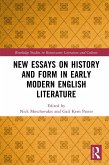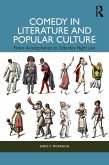(Re)Writing War in Contemporary Literature and Culture (eBook, PDF)
Beyond Post-Memory
Redaktion: Pividori, Cristina; Owen, David
52,95 €
52,95 €
inkl. MwSt.
Sofort per Download lieferbar

26 °P sammeln
52,95 €
Als Download kaufen

52,95 €
inkl. MwSt.
Sofort per Download lieferbar

26 °P sammeln
Jetzt verschenken
Alle Infos zum eBook verschenken
52,95 €
inkl. MwSt.
Sofort per Download lieferbar
Alle Infos zum eBook verschenken

26 °P sammeln
(Re)Writing War in Contemporary Literature and Culture (eBook, PDF)
Beyond Post-Memory
Redaktion: Pividori, Cristina; Owen, David
- Format: PDF
- Merkliste
- Auf die Merkliste
- Bewerten Bewerten
- Teilen
- Produkt teilen
- Produkterinnerung
- Produkterinnerung

Bitte loggen Sie sich zunächst in Ihr Kundenkonto ein oder registrieren Sie sich bei
bücher.de, um das eBook-Abo tolino select nutzen zu können.
Hier können Sie sich einloggen
Hier können Sie sich einloggen
Sie sind bereits eingeloggt. Klicken Sie auf 2. tolino select Abo, um fortzufahren.

Bitte loggen Sie sich zunächst in Ihr Kundenkonto ein oder registrieren Sie sich bei bücher.de, um das eBook-Abo tolino select nutzen zu können.
This critical collection blends academic insights with diverse perspectives, challenging traditional representations of war and offering a fresh, ethically nuanced approach to understanding history's traumatic legacies in literature and culture.
- Geräte: PC
- ohne Kopierschutz
- eBook Hilfe
- Größe: 5.72MB
Andere Kunden interessierten sich auch für
![Emissaries in Early Modern Literature and Culture (eBook, PDF) Emissaries in Early Modern Literature and Culture (eBook, PDF)]() Gitanjali ShahaniEmissaries in Early Modern Literature and Culture (eBook, PDF)56,95 €
Gitanjali ShahaniEmissaries in Early Modern Literature and Culture (eBook, PDF)56,95 €![Forgetting in Early Modern English Literature and Culture (eBook, PDF) Forgetting in Early Modern English Literature and Culture (eBook, PDF)]() Forgetting in Early Modern English Literature and Culture (eBook, PDF)56,95 €
Forgetting in Early Modern English Literature and Culture (eBook, PDF)56,95 €![The Literature of Controversy (eBook, PDF) The Literature of Controversy (eBook, PDF)]() The Literature of Controversy (eBook, PDF)52,95 €
The Literature of Controversy (eBook, PDF)52,95 €![New Essays on History and Form in Early Modern English Literature (eBook, PDF) New Essays on History and Form in Early Modern English Literature (eBook, PDF)]() New Essays on History and Form in Early Modern English Literature (eBook, PDF)42,95 €
New Essays on History and Form in Early Modern English Literature (eBook, PDF)42,95 €![Androids and Intelligent Networks in Early Modern Literature and Culture (eBook, PDF) Androids and Intelligent Networks in Early Modern Literature and Culture (eBook, PDF)]() Kevin LagrandeurAndroids and Intelligent Networks in Early Modern Literature and Culture (eBook, PDF)44,95 €
Kevin LagrandeurAndroids and Intelligent Networks in Early Modern Literature and Culture (eBook, PDF)44,95 €![Comedy in Literature and Popular Culture (eBook, PDF) Comedy in Literature and Popular Culture (eBook, PDF)]() James V. MorrisonComedy in Literature and Popular Culture (eBook, PDF)39,95 €
James V. MorrisonComedy in Literature and Popular Culture (eBook, PDF)39,95 €![British Sporting Literature and Culture in the Long Eighteenth Century (eBook, PDF) British Sporting Literature and Culture in the Long Eighteenth Century (eBook, PDF)]() Sharon HarrowBritish Sporting Literature and Culture in the Long Eighteenth Century (eBook, PDF)42,95 €
Sharon HarrowBritish Sporting Literature and Culture in the Long Eighteenth Century (eBook, PDF)42,95 €-
-
-
This critical collection blends academic insights with diverse perspectives, challenging traditional representations of war and offering a fresh, ethically nuanced approach to understanding history's traumatic legacies in literature and culture.
Dieser Download kann aus rechtlichen Gründen nur mit Rechnungsadresse in A, B, BG, CY, CZ, D, DK, EW, E, FIN, F, GR, HR, H, IRL, I, LT, L, LR, M, NL, PL, P, R, S, SLO, SK ausgeliefert werden.
Produktdetails
- Produktdetails
- Verlag: Taylor & Francis
- Seitenzahl: 312
- Erscheinungstermin: 9. Juli 2024
- Englisch
- ISBN-13: 9781040043301
- Artikelnr.: 72247070
- Verlag: Taylor & Francis
- Seitenzahl: 312
- Erscheinungstermin: 9. Juli 2024
- Englisch
- ISBN-13: 9781040043301
- Artikelnr.: 72247070
- Herstellerkennzeichnung Die Herstellerinformationen sind derzeit nicht verfügbar.
Cristina Pividori is Associate Professor of English Literature at the Universitat Autònoma de Barcelona. Her main research interest is war representation, particularly the aesthetic and ethical challenges inherent in the rendering of the major conflicts of recent times. She has published broadly in these areas. She is also the co-editor of Writings of Persuasion and Dissonance in The Great War. That Better Whiles May Follow Worse (2016) and The Spectre of Defeat: Experience, Memory and Post-Memory (2021). David Owen is Associate Professor of English Literature at the Universitat Autònoma de Barcelona. His research interests focus mainly on English novelistic fiction of the eighteenth and early nineteenth centuries. Particularly, he is interested in the history of the English Novel, its origins and development, and-within that-the formal and artistic properties of the epistolary novel as it affected and was affected by socio-political changes in fiction writing and reading. In terms of individual writers, his research is principally concerned with the works of the English novelist, Jane Austen. He has published broadly in these ambits. He is also the co-editor of Writings of Persuasion and Dissonance in The Great War. That Better Whiles May Follow Worse (2016) and The Spectre of Defeat: Experience, Memory and Post-Memory (2021).
List of Contributors
Preface- Andrew Monnickendam
Introduction- David Owen and Cristina Pividori
PART-1 Post-Memorial Engagements
1. Peace Walls and No-Go Zones: A Portrait of a Generation Caught in
Between in Stacey Gregg's Shibboleth -María Gaviña Costero
1. Postmemorial Work and the Creative Reconstruction of Identity in Nora
Krug's Belonging-
María Jesús Martínez-Alfaro
1. Moi, Rene Tardi, Prisonnier de Guerre Au Stalag IIB: Postmemory and
Anachronistic Narration in Tardi's Graphic Post-Memoir -Umberto Rossi
1. "Too Weary to Weep." Women and Children in Female Nigerian War
Literature -Paula García-Ramírez
1. If I Were Dead "It would sell like hotcakes!": Who Gets to Publish
Their Holocaust Diary? -Ravenel Richardson
1. The Silences of War in Chimamanda Ngozi Adichie's Half of a Yellow
Sun- Thomas Jay Lynn
1. "Before the outbreak of what used to be known as the Great War:"
Ironic Nostalgia in Isabel Colegate's The Shooting Party (1980)
-Cristina Pividori
1. The Limits(?) of the Postmemory Family Story: The Case of Peter
Balakian's Black Dog of Fate- Marzena Soköowska-Pary¿
1. Algerian Families, Imperial Loyalties, and the Memory of the First
World in Le Temps de la douleur by Bahia Kiared -Anna Branach-Kallas
1. Charting the Unwritten: Revisiting Shared Historical Trauma in Novels
by Ruta Sepetys and Günter Grass -Eugenijus muida
PART-II The Aesthetics of War
1. 1. "In the box they see / young bodies hearsed." (Imaginary) Visions
of War in the Poetics of Iain Crichton Smith-Stéphanie Noirard
1. Steven Berkoff's Sink the Belgrano: Trapped Between an 'Anti-Maggie'
Stance and Thatcherite Embodiment- Andrea Roxana Bellot
2. When the Strip Teases: Humour, Sexism, and the Myth of the US Army in
Will Eisner's War Comics- Nicola Paladin
1. Mythic History and Memory: The Making of an Assassin in Jo Nesbø's
The Redbreast -Phyllis Lassner
1. The Representation of the Spanish Civil War in Contemporary British
Fiction: The Cases of C.J. Sansom and Kate Lord Brown - Alberto
Lázaro
1. "Your Cause is Just a Cause Too:" Ireland's Suppressed Great War
Stories in Mary O'Donnell's "Fortune on a Fair Day"-Antía
Román-Sotelo
1. Silence, Discontinuity of Narrative, and Non-Remembrance in Christine
Dwyer Hickey's Last Train from Liguria - David Owen
1. Cold War Romanian Tempo-Localities as the Legacy of World War Two in
Patrick McGuiness's The Last Hundred Days and Paul Bailey's Kitty and
Virgil -Ágnes Harasztos
1. A Postmemorial Aesthetics of Contemporary Haunting: The Architectural
uncanny in Rachel Seiffert's The Dark Room- Christina Howes
1. - Katia Marcellin
1. Detecting the Past: Engaging with the Nazi Past Via Contemporary
Crime Novels- Christine Berberich
1. World War Two and The Cold War as Counterfactual Fiction- Kornelije
Kvas
Beyond Postmemory: A Conversation- Kate McLoughlin, Rachel Seiffert and Jay
Winter
Index
Preface- Andrew Monnickendam
Introduction- David Owen and Cristina Pividori
PART-1 Post-Memorial Engagements
1. Peace Walls and No-Go Zones: A Portrait of a Generation Caught in
Between in Stacey Gregg's Shibboleth -María Gaviña Costero
1. Postmemorial Work and the Creative Reconstruction of Identity in Nora
Krug's Belonging-
María Jesús Martínez-Alfaro
1. Moi, Rene Tardi, Prisonnier de Guerre Au Stalag IIB: Postmemory and
Anachronistic Narration in Tardi's Graphic Post-Memoir -Umberto Rossi
1. "Too Weary to Weep." Women and Children in Female Nigerian War
Literature -Paula García-Ramírez
1. If I Were Dead "It would sell like hotcakes!": Who Gets to Publish
Their Holocaust Diary? -Ravenel Richardson
1. The Silences of War in Chimamanda Ngozi Adichie's Half of a Yellow
Sun- Thomas Jay Lynn
1. "Before the outbreak of what used to be known as the Great War:"
Ironic Nostalgia in Isabel Colegate's The Shooting Party (1980)
-Cristina Pividori
1. The Limits(?) of the Postmemory Family Story: The Case of Peter
Balakian's Black Dog of Fate- Marzena Soköowska-Pary¿
1. Algerian Families, Imperial Loyalties, and the Memory of the First
World in Le Temps de la douleur by Bahia Kiared -Anna Branach-Kallas
1. Charting the Unwritten: Revisiting Shared Historical Trauma in Novels
by Ruta Sepetys and Günter Grass -Eugenijus muida
PART-II The Aesthetics of War
1. 1. "In the box they see / young bodies hearsed." (Imaginary) Visions
of War in the Poetics of Iain Crichton Smith-Stéphanie Noirard
1. Steven Berkoff's Sink the Belgrano: Trapped Between an 'Anti-Maggie'
Stance and Thatcherite Embodiment- Andrea Roxana Bellot
2. When the Strip Teases: Humour, Sexism, and the Myth of the US Army in
Will Eisner's War Comics- Nicola Paladin
1. Mythic History and Memory: The Making of an Assassin in Jo Nesbø's
The Redbreast -Phyllis Lassner
1. The Representation of the Spanish Civil War in Contemporary British
Fiction: The Cases of C.J. Sansom and Kate Lord Brown - Alberto
Lázaro
1. "Your Cause is Just a Cause Too:" Ireland's Suppressed Great War
Stories in Mary O'Donnell's "Fortune on a Fair Day"-Antía
Román-Sotelo
1. Silence, Discontinuity of Narrative, and Non-Remembrance in Christine
Dwyer Hickey's Last Train from Liguria - David Owen
1. Cold War Romanian Tempo-Localities as the Legacy of World War Two in
Patrick McGuiness's The Last Hundred Days and Paul Bailey's Kitty and
Virgil -Ágnes Harasztos
1. A Postmemorial Aesthetics of Contemporary Haunting: The Architectural
uncanny in Rachel Seiffert's The Dark Room- Christina Howes
1. - Katia Marcellin
1. Detecting the Past: Engaging with the Nazi Past Via Contemporary
Crime Novels- Christine Berberich
1. World War Two and The Cold War as Counterfactual Fiction- Kornelije
Kvas
Beyond Postmemory: A Conversation- Kate McLoughlin, Rachel Seiffert and Jay
Winter
Index
List of Contributors
Preface- Andrew Monnickendam
Introduction- David Owen and Cristina Pividori
PART-1 Post-Memorial Engagements
1. Peace Walls and No-Go Zones: A Portrait of a Generation Caught in
Between in Stacey Gregg's Shibboleth -María Gaviña Costero
1. Postmemorial Work and the Creative Reconstruction of Identity in Nora
Krug's Belonging-
María Jesús Martínez-Alfaro
1. Moi, Rene Tardi, Prisonnier de Guerre Au Stalag IIB: Postmemory and
Anachronistic Narration in Tardi's Graphic Post-Memoir -Umberto Rossi
1. "Too Weary to Weep." Women and Children in Female Nigerian War
Literature -Paula García-Ramírez
1. If I Were Dead "It would sell like hotcakes!": Who Gets to Publish
Their Holocaust Diary? -Ravenel Richardson
1. The Silences of War in Chimamanda Ngozi Adichie's Half of a Yellow
Sun- Thomas Jay Lynn
1. "Before the outbreak of what used to be known as the Great War:"
Ironic Nostalgia in Isabel Colegate's The Shooting Party (1980)
-Cristina Pividori
1. The Limits(?) of the Postmemory Family Story: The Case of Peter
Balakian's Black Dog of Fate- Marzena Soköowska-Pary¿
1. Algerian Families, Imperial Loyalties, and the Memory of the First
World in Le Temps de la douleur by Bahia Kiared -Anna Branach-Kallas
1. Charting the Unwritten: Revisiting Shared Historical Trauma in Novels
by Ruta Sepetys and Günter Grass -Eugenijus muida
PART-II The Aesthetics of War
1. 1. "In the box they see / young bodies hearsed." (Imaginary) Visions
of War in the Poetics of Iain Crichton Smith-Stéphanie Noirard
1. Steven Berkoff's Sink the Belgrano: Trapped Between an 'Anti-Maggie'
Stance and Thatcherite Embodiment- Andrea Roxana Bellot
2. When the Strip Teases: Humour, Sexism, and the Myth of the US Army in
Will Eisner's War Comics- Nicola Paladin
1. Mythic History and Memory: The Making of an Assassin in Jo Nesbø's
The Redbreast -Phyllis Lassner
1. The Representation of the Spanish Civil War in Contemporary British
Fiction: The Cases of C.J. Sansom and Kate Lord Brown - Alberto
Lázaro
1. "Your Cause is Just a Cause Too:" Ireland's Suppressed Great War
Stories in Mary O'Donnell's "Fortune on a Fair Day"-Antía
Román-Sotelo
1. Silence, Discontinuity of Narrative, and Non-Remembrance in Christine
Dwyer Hickey's Last Train from Liguria - David Owen
1. Cold War Romanian Tempo-Localities as the Legacy of World War Two in
Patrick McGuiness's The Last Hundred Days and Paul Bailey's Kitty and
Virgil -Ágnes Harasztos
1. A Postmemorial Aesthetics of Contemporary Haunting: The Architectural
uncanny in Rachel Seiffert's The Dark Room- Christina Howes
1. - Katia Marcellin
1. Detecting the Past: Engaging with the Nazi Past Via Contemporary
Crime Novels- Christine Berberich
1. World War Two and The Cold War as Counterfactual Fiction- Kornelije
Kvas
Beyond Postmemory: A Conversation- Kate McLoughlin, Rachel Seiffert and Jay
Winter
Index
Preface- Andrew Monnickendam
Introduction- David Owen and Cristina Pividori
PART-1 Post-Memorial Engagements
1. Peace Walls and No-Go Zones: A Portrait of a Generation Caught in
Between in Stacey Gregg's Shibboleth -María Gaviña Costero
1. Postmemorial Work and the Creative Reconstruction of Identity in Nora
Krug's Belonging-
María Jesús Martínez-Alfaro
1. Moi, Rene Tardi, Prisonnier de Guerre Au Stalag IIB: Postmemory and
Anachronistic Narration in Tardi's Graphic Post-Memoir -Umberto Rossi
1. "Too Weary to Weep." Women and Children in Female Nigerian War
Literature -Paula García-Ramírez
1. If I Were Dead "It would sell like hotcakes!": Who Gets to Publish
Their Holocaust Diary? -Ravenel Richardson
1. The Silences of War in Chimamanda Ngozi Adichie's Half of a Yellow
Sun- Thomas Jay Lynn
1. "Before the outbreak of what used to be known as the Great War:"
Ironic Nostalgia in Isabel Colegate's The Shooting Party (1980)
-Cristina Pividori
1. The Limits(?) of the Postmemory Family Story: The Case of Peter
Balakian's Black Dog of Fate- Marzena Soköowska-Pary¿
1. Algerian Families, Imperial Loyalties, and the Memory of the First
World in Le Temps de la douleur by Bahia Kiared -Anna Branach-Kallas
1. Charting the Unwritten: Revisiting Shared Historical Trauma in Novels
by Ruta Sepetys and Günter Grass -Eugenijus muida
PART-II The Aesthetics of War
1. 1. "In the box they see / young bodies hearsed." (Imaginary) Visions
of War in the Poetics of Iain Crichton Smith-Stéphanie Noirard
1. Steven Berkoff's Sink the Belgrano: Trapped Between an 'Anti-Maggie'
Stance and Thatcherite Embodiment- Andrea Roxana Bellot
2. When the Strip Teases: Humour, Sexism, and the Myth of the US Army in
Will Eisner's War Comics- Nicola Paladin
1. Mythic History and Memory: The Making of an Assassin in Jo Nesbø's
The Redbreast -Phyllis Lassner
1. The Representation of the Spanish Civil War in Contemporary British
Fiction: The Cases of C.J. Sansom and Kate Lord Brown - Alberto
Lázaro
1. "Your Cause is Just a Cause Too:" Ireland's Suppressed Great War
Stories in Mary O'Donnell's "Fortune on a Fair Day"-Antía
Román-Sotelo
1. Silence, Discontinuity of Narrative, and Non-Remembrance in Christine
Dwyer Hickey's Last Train from Liguria - David Owen
1. Cold War Romanian Tempo-Localities as the Legacy of World War Two in
Patrick McGuiness's The Last Hundred Days and Paul Bailey's Kitty and
Virgil -Ágnes Harasztos
1. A Postmemorial Aesthetics of Contemporary Haunting: The Architectural
uncanny in Rachel Seiffert's The Dark Room- Christina Howes
1. - Katia Marcellin
1. Detecting the Past: Engaging with the Nazi Past Via Contemporary
Crime Novels- Christine Berberich
1. World War Two and The Cold War as Counterfactual Fiction- Kornelije
Kvas
Beyond Postmemory: A Conversation- Kate McLoughlin, Rachel Seiffert and Jay
Winter
Index







